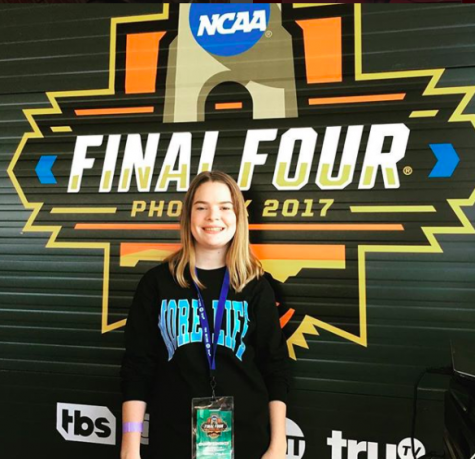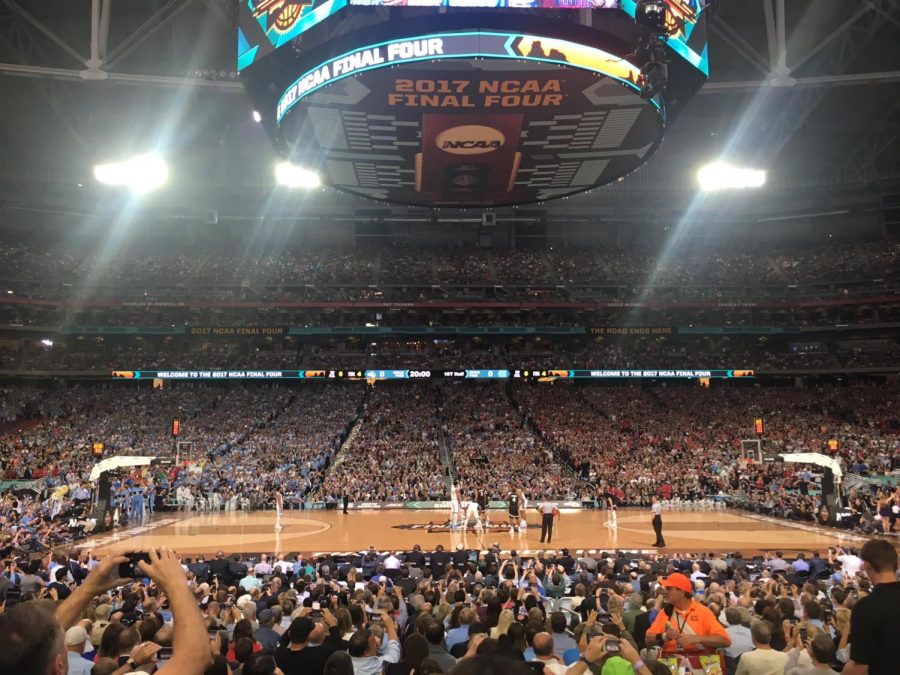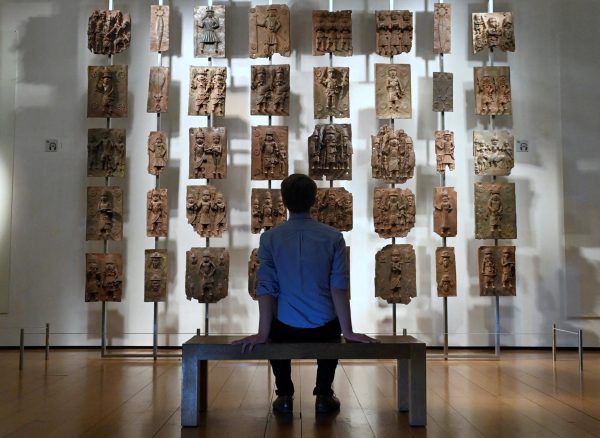Op-Ed: It’s time to start paying collegiate athletes
Photo credit: Gracie Marx
I attended the 2017 NCAA championship game between North Carolina and Gonzaga. The atmosphere was something I have never felt at a sport’s venue; it was ecstatic.
Going to school for free to play the sport you love seems like a dream, right? Then why are multiple athletes reporting going to bed hungry every year?
Playing collegiate sports is a dream that only six percent of high school athletes are able to carry out. Many male athletes dreams of playing in March Madness or the College Football Playoff, which are considered to be the NCAA’s grandest stage for collegiate athletes.
In Division I collegiate sports, universities offer scholarships that full tuition and supply room and board for the athletes. But for many college athletes, this promise isn’t carried out.
University of Connecticut guard, Shabazz Napier has complained about going to bed “starving,” despite the free meal plans that the university offers all student athletes.
Napier told CNN, “There’s hungry nights, and I’m not able to eat. I still got to play up to my capabilities…When you see your jersey getting sold — it may not have your last name on it — but when you see your jersey getting sold and things like that, you feel like you want something in return.”
It’s time to start paying college athletes a small compensation, so they do not go to bed hungry. These athletes need money for basic necessities such as groceries and toiletries, especially when their schools and teams are profiting from their athletic successes.
With the NCAA bringing in revenue through commercials, television deals, jerseys and sponsors, they should be able to pay these collegiate athletes a small compensation.

Here is a photo of me from the 2017 NCAA National Championship in Phoenix. University of North Carolina defeated Gonzaga University 71-65 in a thrilling game.
Television stations such as Turner and TNT make over $10.8 billion during NCAA’s men’s basketball national championship tournament, also known as March Madness.
Jersey sales are another reason to pay athletes. With the small percentage athletes can gain from jersey sales, they would be able to purchase basic amenities. A deal should be soon considered by the NCAA where players get at least 20 percent of jersey revenue.
While some argue that paying collegiate athletes will eliminate the purity of collegiate sports, giving an equitable compensation to supply them with basic necessities is essential for the development and growth of the NCAA. Players won’t become greedy because they are only making a small, but fair, percentage.
After a long and exhausting day of grueling practices, no athlete should stay up hungry. These athletes give their most valiant effort representing their school and at least deserve a small payment to ensure they live a healthy life.

Gracie Marx is excited to be a new staff member for the Oracle. She played varsity basketball for two years and hopes to continue this year after missing...











Alexandra Chang • Jan 28, 2018 at 8:04 pm
Gracie, I love this article. Great job! It was a super interesting read, too.
Jael Ellman • Jan 28, 2018 at 4:09 pm
I love your argument. So interesting! Well done!
Sarah • Jan 28, 2018 at 3:51 pm
Love it scrubby!